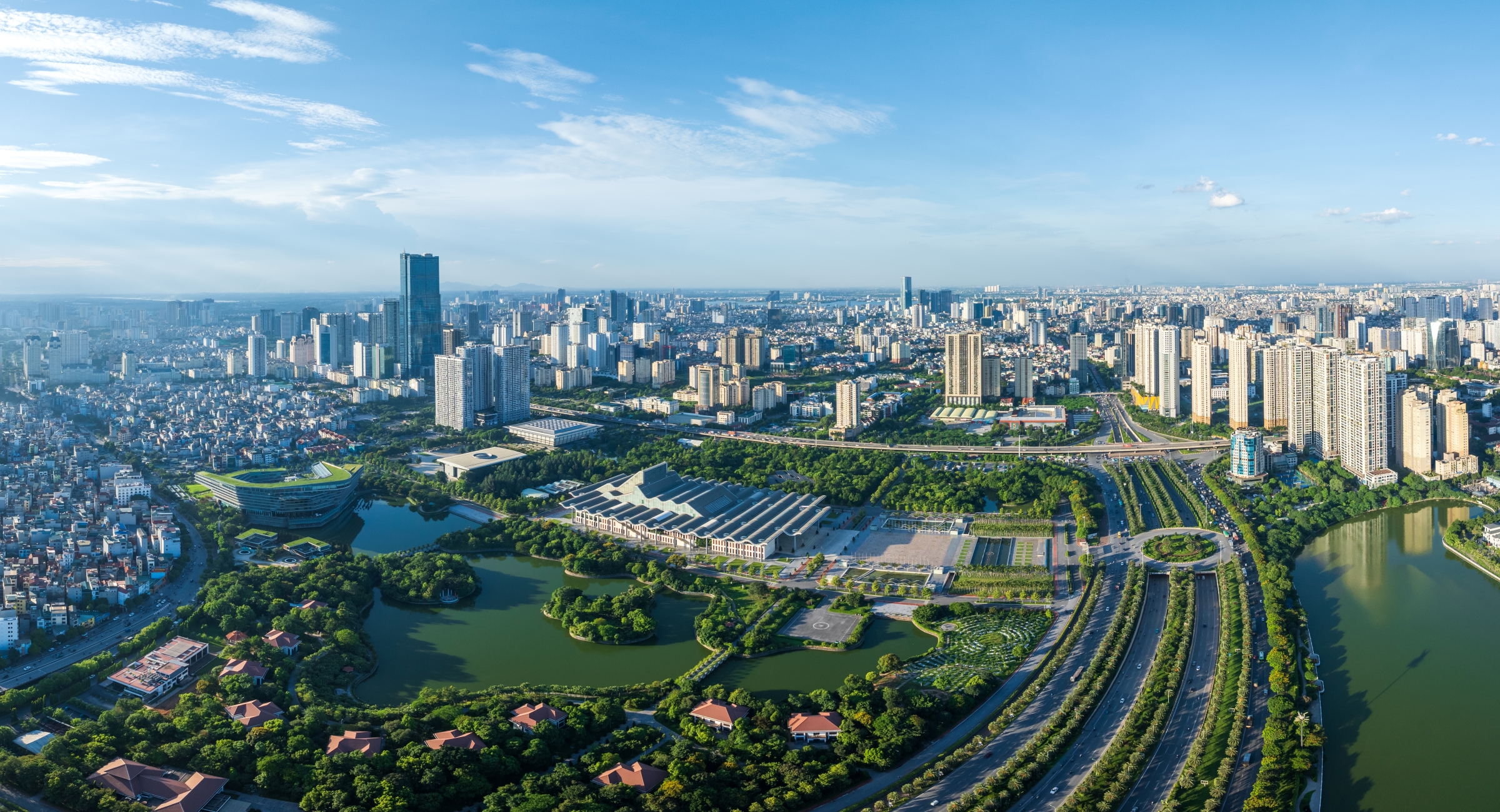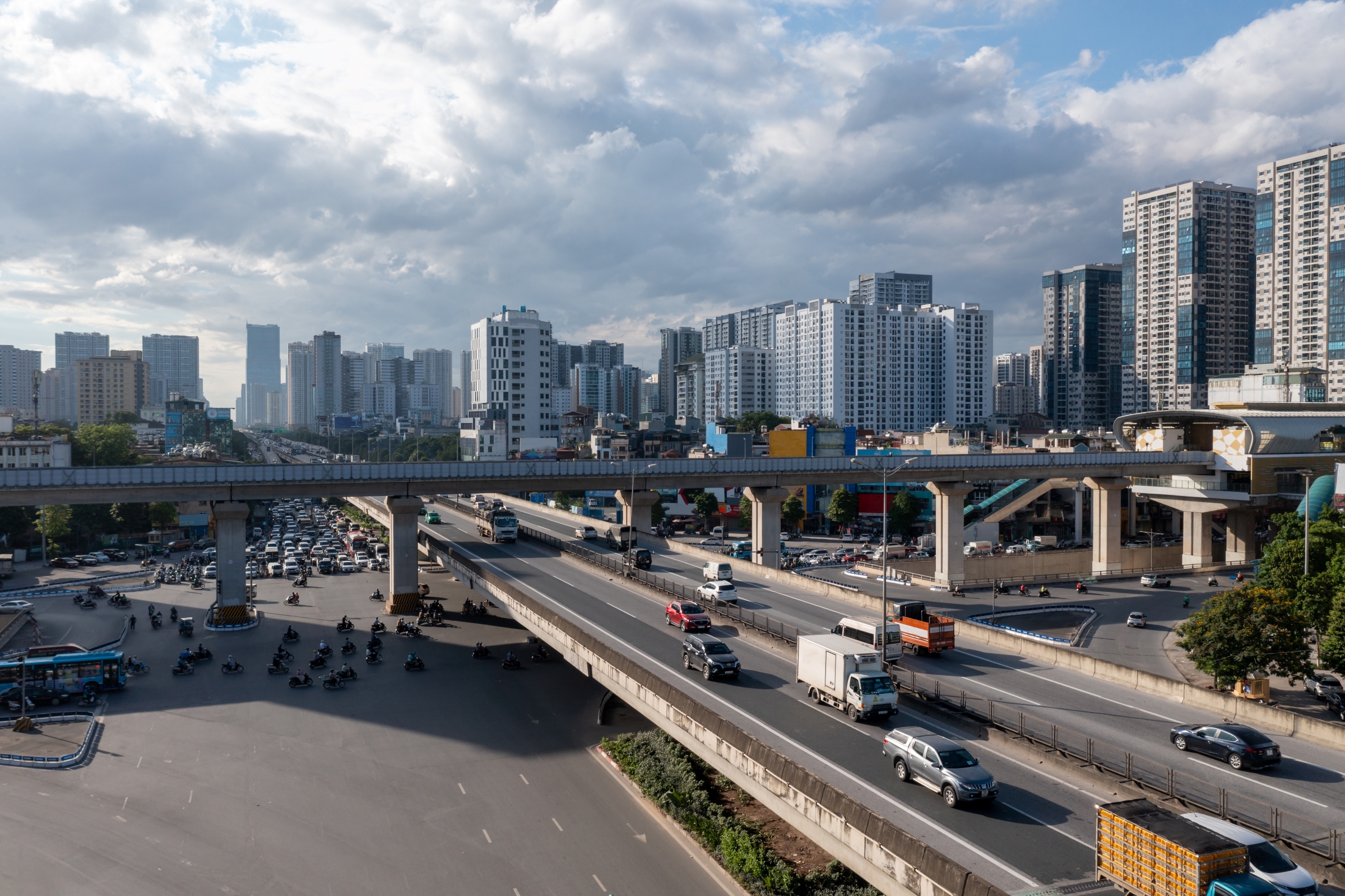VIETNAM REAL ESTATE: HANOI CAPITAL CITY’S TRANSITIONING
The real estate market in Hanoi Capital City experienced a seismic shift in May 2024. Gone are the heady days of Q1 2024, when apartment prices skyrocketed and transactions flowed freely. Today, the market has hit the brakes, with a visible sense of caution as investors and buyers await the enactment of new amendments to the Land Law, Housing Law, and Real Estate Business Law. These legal changes are poised to redefine the landscape, and the market is holding its breath.
Shifting Sands: New Price Norms
According to the OneHousing Market Research and Customer Insight Center, Hanoi’s apartment market has entered a new phase. In Q1 2024, prices for primary, mid-range, and high-end apartments rose by 11%, 17%, and 19% respectively, compared to the same period in 2023. Yet, by April and May, this upward trajectory came to a halt, signaling a need for the market to readjust.
Developers have strategically focused their supply on Hanoi’s eastern and western corridors. Projects that opened in 2023 continue to dominate the offerings, maintaining stable prices across various segments. For instance, in Bac Tu Liem’s Ngoai Giao Doan area, 23 buildings offer spacious apartments (100-171 sqm) priced between VND 60-70 million per sqm. The N03T8 building stands out with its design that has been around for a decade, and it is priced at around VND 50 million per sqm. Meanwhile, new high-end developments in the same area command prices as high as VND 120 million per sqm.
In Thanh Xuan and Cau Giay districts, prices have steadied at approximately VND 80 million per sqm for new units. The high cost of inner-city properties has pushed transactions for units under VND 5 billion to Nam Tu Liem District and the suburban Gia Lam District, where more affordable options are available.
The Waiting Game: Anticipating Legal Reforms
As Hanoi’s real estate market braces for impending legal reforms, a marked slowdown in activity is evident. Data from Batdongsan.com.vn indicates that transaction volumes, search activity, and listings all declined in April and May 2024 compared to Q1. This hesitancy reflects a market in suspense, as stakeholders are holding back to assess the consequences of recent policies.
The average price of Hanoi apartments currently ranges between VND 50-70 million per sqm, soaring 38% over the past five years. Despite a lingering annual shortage of around 50,000 apartments, the approval rate for new commercial housing projects has been dwindling. Policy shifts and regulatory constraints since 2018 have significantly curtailed housing supply, resulting in a chronic demand-supply imbalance that continues to drive prices upward.
Examining Market Trends and Projections
The Ministry of Construction’s recent data paints a vivid picture of the price dynamics in Hanoi. New and resale apartment prices have climbed moderately by 3.3-4.2% since the end of 2023. Take a look at the price hikes in Vinhomes Nguyen Chi Thanh in Dong Da District, where prices surged by 4.2% to reach over VND 72 million per sqm. Similarly, Sunshine Garden in Hai Ba Trung District experienced a 3.8% increase, with prices reaching VND 45.9 million per sqm.
Research from the Vietnam Association of Realtors underscores a persistent trend of rising prices. In Q1 2024, apartment prices surged by staggering 48% compared to Q1 2019 and by 8 percentage points compared to Q4 2023, marking the steepest increase in five years. This upward momentum is fueled by continuous infrastructure improvements, a robust demand for housing, and substantial investment inflows into the real estate sector.
Legislative Impacts and Market Adjustments
The Vietnamese government is not standing idle. On May 27, 2024, Resolution No. 79/NQ-CP was issued to amend several key laws affecting real estate, aiming for a comprehensive legal overhaul by August 1, 2024. These changes are expected to clear regulatory hurdles, boost housing supply, and stabilize market prices. Dr. Nguyen Van Dinh, Vice President of the Vietnam Real Estate Association, is optimistic. He believes that with these legal adjustments, the supply of social and commercial housing will increase, making prices more accessible to end-users with actual dwelling needs. The goal is to implement these new laws effectively, ensuring a transparent and sustainable market.
However, this optimism is tempered with caution. The real estate market’s future stability hinges on the swift and decisive execution of these new regulations. Stakeholders are wary of the potential pitfalls—delays, bureaucratic inefficiencies, and unintended consequences that could arise during implementation.
A Market in Transition
Hanoi’s real estate market is at a crossroads. The confluence of new legal reforms and existing market dynamics presents both opportunities and challenges. For investors and buyers, the coming months will be crucial. Staying informed and agile will be key to navigating this transitional period.
As the market adjusts to the new legal landscape, one thing is certain: the days of unchecked price surges and speculative fervor are over. The future promises a more regulated, stable market—one that prioritizes sustainability and aligns more closely with the real demand and financial capabilities of Hanoi’s residents. A fruitful implementation of the new laws and the market’s ability to adapt to these changes will ultimately determine the extent to which this promise is fulfilled.
Get professional insights in Vietnam properties, residential leasing and asset management by Arcadia Consulting Vietnam, reach our Residential Services team at +84 902 770 988 via WhatsApp and Zalo or rs@arcadia-consult.com.vn.









